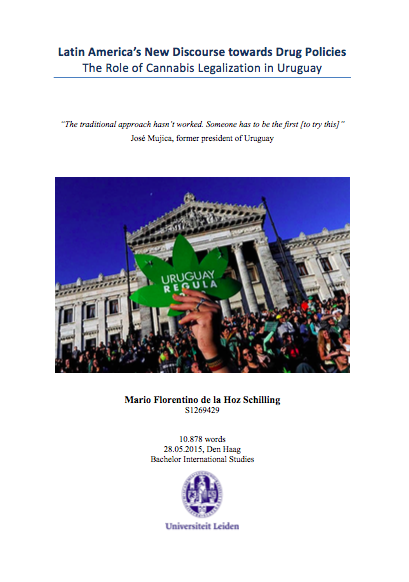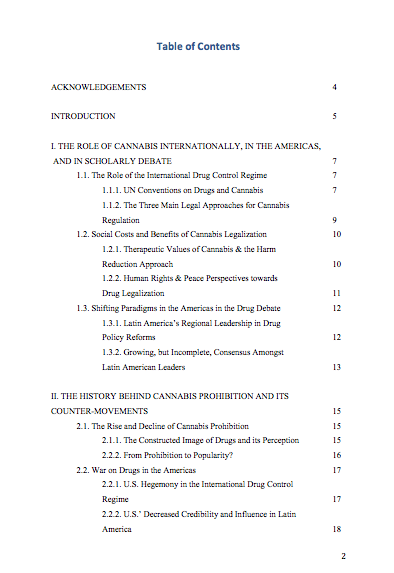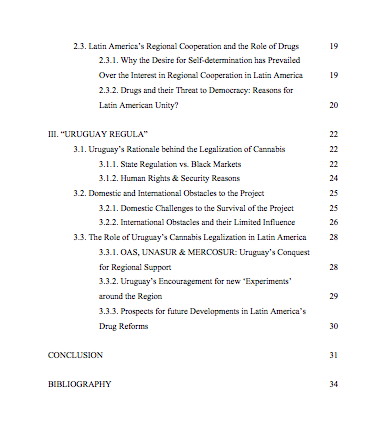Author: Mario F de la Hoz Schilling
Abstract
In December 2013, Uruguay became the first country in the world to fully legalize cannabis, regulating all processes from the possession, growth, and distribution of the plant. As a breakthrough in the international drug control regime, it reflects the rapidly shifting paradigm towards drug policies in Latin America. The international and mostly U.S. led attempt to eliminate the production, transport, sale and consumption of so-classified illicit drugs, or narcotic and psychotropic drugs, has been for several decades an important dynamic in the relations, movements and conflicts across all of the Americas. The social and human costs have been very high and an increasingly larger amount of activists, politicians and researchers have spoken out against this often called ‘war on drugs’ and have sought for alternatives to avoid the costs paid by society. These alternatives mostly focus on cannabis, the most consumed illicit drug worldwide (UNODC: 2014, 41). Accordingly, this paper will mostly limit its scope on the specific role of cannabis. Though the prohibitionist model continues to prevail in the region, an increasing amount of countries have decriminalized cannabis and the reform debates in the region have gradually gained legitimacy and importance in the past few years. Due to the importance and impacts that these transnational trends have in the region, this paper will assess what role the legalization of cannabis in Uruguay has played in the discourse towards drug policies in Latin America. The objective of this study is to analyze the Latin American paradigm shift away from prohibitionism and towards the regulation of cannabis as an alternative to the war on drugs and, in such context, the decreasing hegemony of the U.S. in the region. The case study, more specifically, will look at the transnational effects that Uruguay’s decision has had in the region to reinforce these trends.
Paper
Latin_Americas_New_Discourse_Towards_Dru (1)


